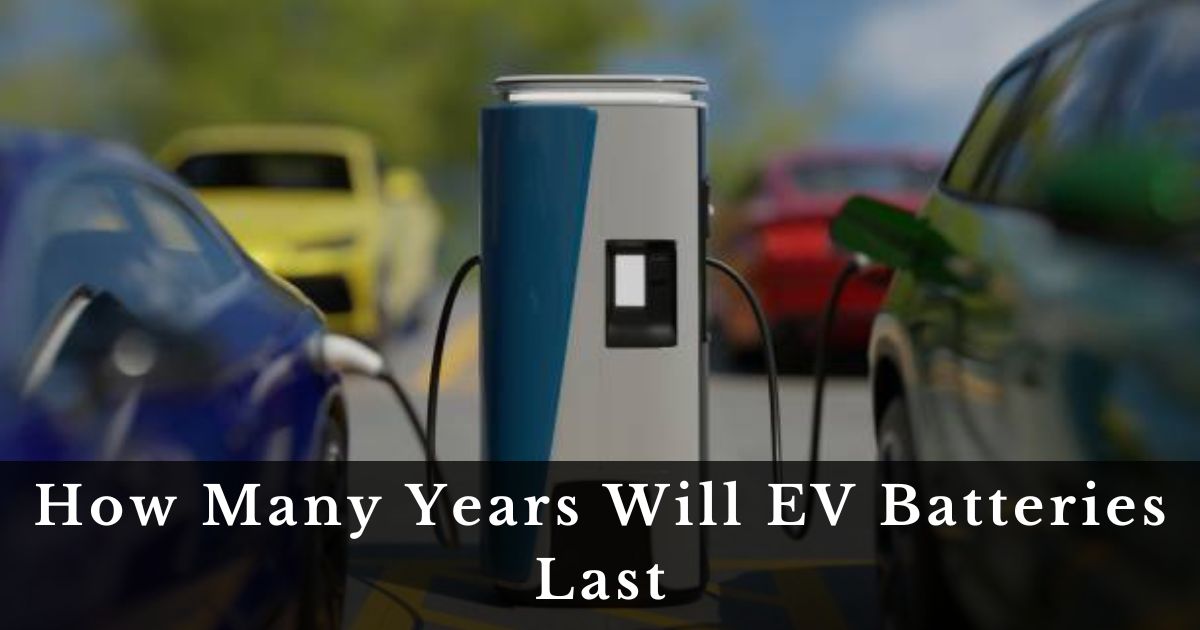How many years will EV batteries last, More and more people are choosing electric cars because they’re good for the environment and can save money. But many people wonder: How long does an electric car battery work? Let’s talk about that in a way that’s to understand.
How Long Do Electric Vehicle (EV) Batteries Last?
Electric vehicles (EVs) have gained significant popularity in recent years due to their environmentally friendly nature and potential cost savings in the long run. One of the most common questions regarding EVs is about the lifespan of their batteries. In simple terms, how many years can you expect an EV battery to last?
Factors Affecting EV Battery Lifespan
Battery Chemistry
The type of battery used in an EV plays a crucial role in determining its lifespan. Lithium-ion batteries, which are commonly used in EVs, have varying lifespans depending on their specific chemistry.
Depth of Discharge (DOD)
The depth to which an EV battery is discharged during each use affects its longevity. Deeper discharges can lead to faster degradation of the battery over time.
Temperature
Extreme temperatures, both hot and cold, can have detrimental effects on EV battery lifespan. High temperatures accelerate chemical reactions within the battery, while cold temperatures can decrease overall performance and efficiency.
Charging Cycles
The number of charging cycles an EV battery goes through also impacts its lifespan. Each time a battery is charged and discharged, it undergoes a certain amount of wear and tear, gradually reducing its capacity.
Average Lifespan of EV Batteries
On average, most EV manufacturers offer warranties ranging from 8 to 10 years or a certain number of miles, typically around 100,000 miles. However, the actual lifespan of an EV battery can vary depending on usage patterns, environmental factors, and battery management systems.
Strategies to Prolong EV Battery Lifespan
Proper Charging Habits
Following recommended charging practices, such as avoiding frequent deep discharges and using slow charging whenever possible, can help extend the lifespan of an EV battery.
Avoiding Extreme Temperatures
Parking in shaded areas or using climate control features to regulate temperature can mitigate the impact of extreme weather conditions on EV battery health.
Regular Maintenance
Periodic maintenance checks, including battery inspections and software updates, can help identify and address issues that may affect battery performance and lifespan.
How Long Do EV Batteries Last?
Now, let’s get to the heart of the matter. On average, EV batteries are designed to last between 8 to 15 years or more. However, this lifespan can vary widely depending on the factors mentioned earlier.
For example, a Tesla Model S is estimated to retain about 70% to 80% of its original battery capacity after 8 years or 150,000 miles. Meanwhile, a Nissan Leaf might experience more significant degradation over the same period. It’s essential to note that even after reaching the end of its usable life in a vehicle, an EV battery can still have value. Many manufacturers offer battery recycling programs, and used EV batteries can be repurposed for energy storage applications.
Recycling and Sustainability
As EV technology continues to evolve, efforts are being made to improve battery recycling processes and promote sustainability. Recycling EV batteries not only reduces environmental impact but also contributes to the availability of valuable resources for manufacturing new batteries.
While the exact lifespan of an EV battery may vary, taking proactive measures to optimize charging habits, minimize exposure to extreme temperatures, and prioritize regular maintenance can help maximize battery longevity. As the automotive industry continues to innovate, advancements in battery technology and recycling practices offer promising solutions for a sustainable future.
Unique FAQs
Can EV batteries be replaced?
Yes, EV batteries can be replaced when they reach the end of their lifespan or experience significant degradation. Many manufacturers offer battery replacement services or warranty coverage for battery-related issues.
Do EV batteries degrade over time?
Yes, like all batteries, EV batteries degrade over time due to factors such as usage patterns, environmental conditions, and charging habits. However, proper maintenance and care can help slow down the rate of degradation.
What happens to old EV batteries?
Old EV batteries can be recycled to recover valuable materials such as lithium, cobalt, and nickel. These materials can then be reused in the manufacturing of new batteries or other electronic devices.
Are there any aftermarket solutions to improve EV battery lifespan?
While aftermarket solutions exist, such as battery management systems and cooling systems, it’s essential to consult with experts and consider manufacturer recommendations before making any modifications to your EV.
How can I check the health of my EV battery?
Many EVs come equipped with onboard diagnostics that provide information about battery health and performance. Additionally, certified technicians can conduct thorough inspections and tests to assess the condition of the battery.



